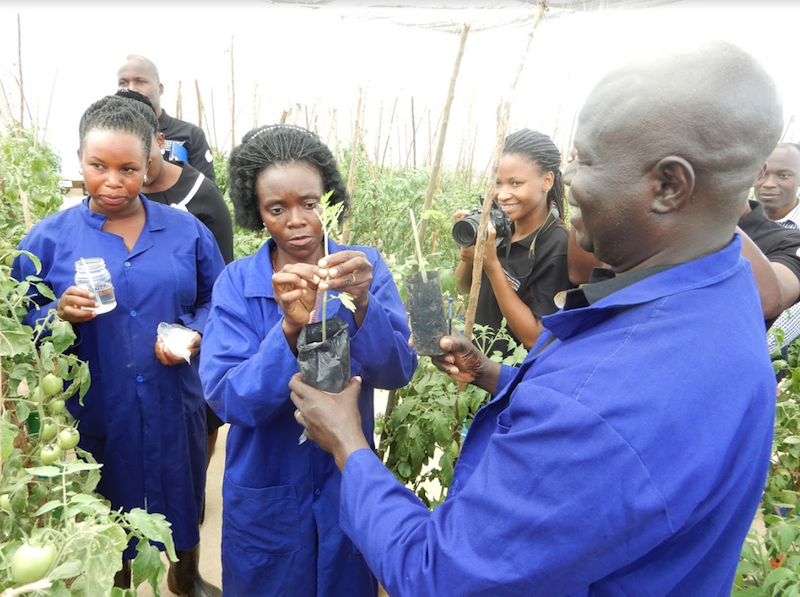
Combating Tomato Bacterial Wilt
The tomato resilience and production sustainability project was officially launched at Wakiso District in Uganda on 14th August 2018. Addressing participants during the project launch, Ms Anja de Feijter, Managing Director of House of Seeds, stated that tomato bacterial wilt is a serious problem that is spreading like bush-fire across the country.
The partnership with Solidaridad has worked towards offering acceptable solutions to the local markets. The main focus is to propagate new breeds from rootstocks that are bacterial wilt resistant, and capable of producing bigger tomatoes. Anja de Feijter urged tomato growers practicing organic farming to avoid treated seeds, and instead lobby the government into allowing the importation of organic seeds, due to their high resistance to disease.
Economic Value of Tomatoes
The tomato fruit plays a vital role in increasing rural household incomes, diversifying national exports, providing raw materials for agro-based industries, and creating employment for the youth. Dr Africano Kangire, a Senior Research Scientist at National Agricultural Research Organization (NARO)revealed that most of the tomato varieties found in Uganda are susceptible to bacterial wilt disease.
Dr. Kangire noted that five varieties of pathogen are spread all over the country, and acknowledged the timely interventions from the Dutch Embassy in Uganda to curb the menace. Kangire categorically stated that these actions are what will ultimately ensure the resilience and sustained tomato productivity in Uganda.
Acknowledgments were also directed at Enza Zaden and House of Seeds for providing planting materials used to propagate bacterial wilt resistant breeds. Consequently Solidaridad was acknowledged for providing the greenhouse where breeding of the new varieties was being undertaken.
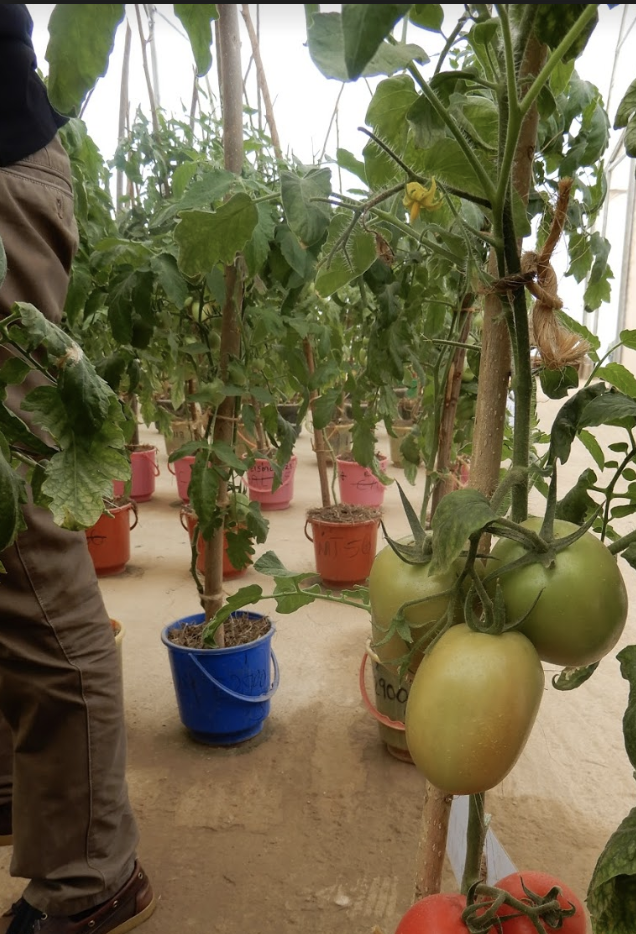
Commercializing the Grafted Tomato Technology
Mr. Julius Ssemyalo, Solidaridad Uganda Projects Manager praised the results of the project. He said: “We have proven the concept of grafting tomatoes in Uganda, and other actors have adopted the technology to improve their farming techniques.”
The operations use polypropylene material that is easily accessible by locals for grafting. This makes the technology adaptable and within reach for the smallholder farmers who are targeted by the project.
The project has been implemented in Wakiso, Mpigi, Kabale, Luwero and Mukono Districts of Uganda. So far, it has incorporated participation from over 4,500 smallholder farmers and agronomists, researchers, and a consortium of development partners. These include Enza Zaden, Agri Pro Focus, House of Seeds, NaCRRI, NARO, Netherlands Organization for Scientific Research, and the Makerere University.
Following the successful results, a confident Ssemyalo stated that they now rely on the farmers they have worked with throughout the project to commercialize the technology. This will make Uganda a regional and international net exporter of tomatoes. Ssemyalo suggests that the project has mobilized 500 youths who will now undergo a series of business trainings from an independent business advisor.
The aim? To prepare them to form investment groups for financial inclusion and access to affordable credit. On a final note, Ssemyalo advised farmers to show their appreciation for science and research by paying for quality seeds and not entirely depending on free seedlings.
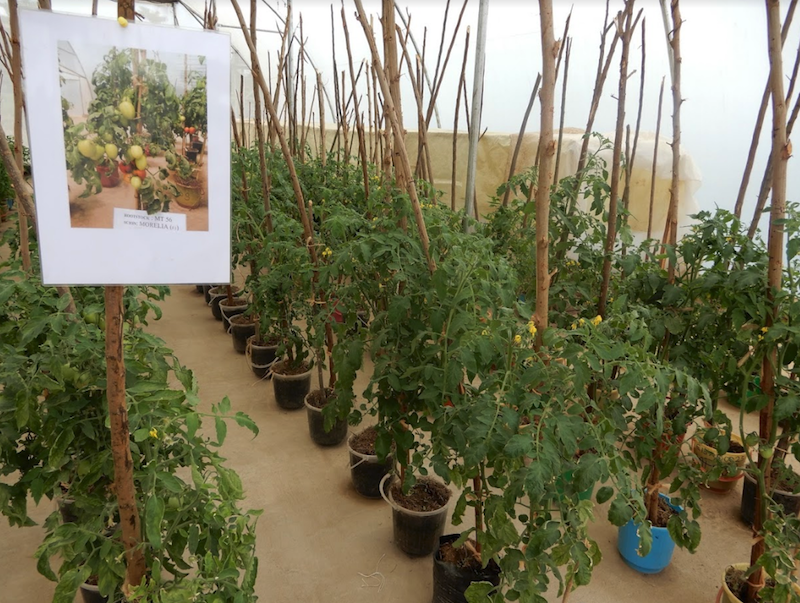
Supporting Agricultural Research for Sustainable Production
The importance of research in improving productivity was a central conversation topic at the launch. Mr Karugu Macharia, Managing Director at Solidaridad East and Central Africa, suggested that productivity and profitability go hand-in-hand. Solidaridad is the link between the researchers and the producers charged with the responsibility of interpreting the profitability aspects to farmers. Karugu observed that since agriculture is a wealth creator and a profitable business, the language that a farmer understands best is the language of money.
Karugu urged the researchers to translate their findings into understandable concepts, and transfer the technology into the hands of farmers. Many innovations have been developed on the continent but they hardly reach the implementation phase. For the project to deliver on its main objectives, according to Karugu, the research findings should be communicated in languages best understood by the beneficiaries. This would push Uganda closer to realizing its market-oriented agriculture vision by 2040.
Technology adopted by the project bears far-reaching benefits in terms of decreasing susceptibility to root diseases, and increasing fruit production through increased plant vigor. However, as Karugu noted, multiple taxation regimes, low incentives in terms of local market prices, high costs of inputs, and air freight are all obstacles to the growth potential of the Ugandan horticulture industry. Here, the public-private partnerships play a vital role in finding lasting solutions to these challenges by creating a regulated industry environment and ensuring quality control for local produce.
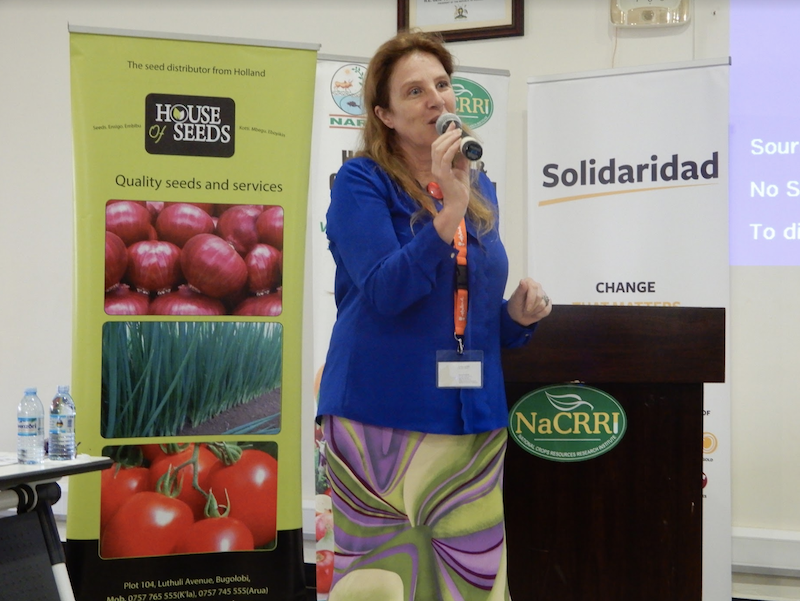
Doing the Ordinary, Extraordinarily Well
Mr Josephat Byaruhanga, Senior Policy Advisor on Agriculture and Agribusiness to the Dutch Embassy in Uganda, urged farmers to adopt smart farming methods and maximize land use for increased crop productivity. For instance, farmers in the Netherlands who practice smart farming reap 100 kgs of tomatoes from only four tomato plants.
Byaruhanga emphasized the national ‘Vision 2040’ agenda to transform agriculture from subsistence to commercial. This is achievable through project partnerships such as the one spearheaded by Solidaridad on tomato resilience in Uganda. Byaruhanga suggested that the product Solidaridad is putting on the market today is like adding an extra brick to a building we’ll be able to look at by 2040.
In support of the national agenda to commercialize agriculture by 2040, the Dutch Embassy in Uganda hosts the ‘Annual Best Farmers Competition’ to encourage agribusiness and best practice. The winners are taken on benchmark visits to the Netherlands to learn smart farming strategies from their peers and are exposed to trending agricultural innovations.
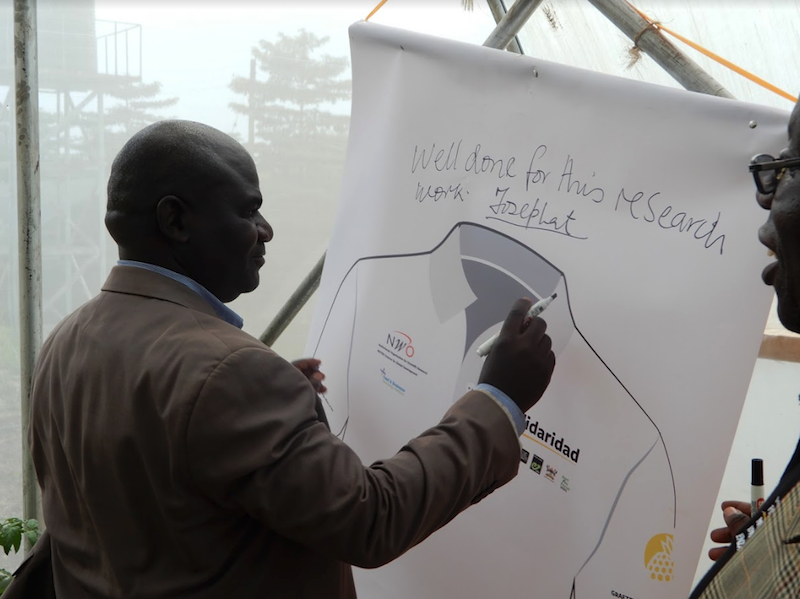
The Dutch Embassy in Uganda has supported various projects along the seed value chain with the aim of ensuring availability of quality seeds to farmers. There are several Dutch potato varieties that have been tested in Uganda. Nine have been approved, recommended and are being multiplied to be availed to farmers who grow potatoes across seven different ecological zones in the country. The Embassy is now exploring the Ugandan Dairy sector for possible investment prospects.
There’s a need for well-organized strong farmer institutions to ensure easy access to quality farm inputs
and innovations. Byaruhanga decried the poor phytosanitary standards of the horticultural produce from Uganda. He followed up with calling on the government to upscale and match them to international market standards. There is need to invest in better production methods, post-harvest handling and quality management to improve consumer acceptance of local horticultural produce. So far, little effort has been made to ensure product compliance to standards and other market access requirements – especially in internal markets.
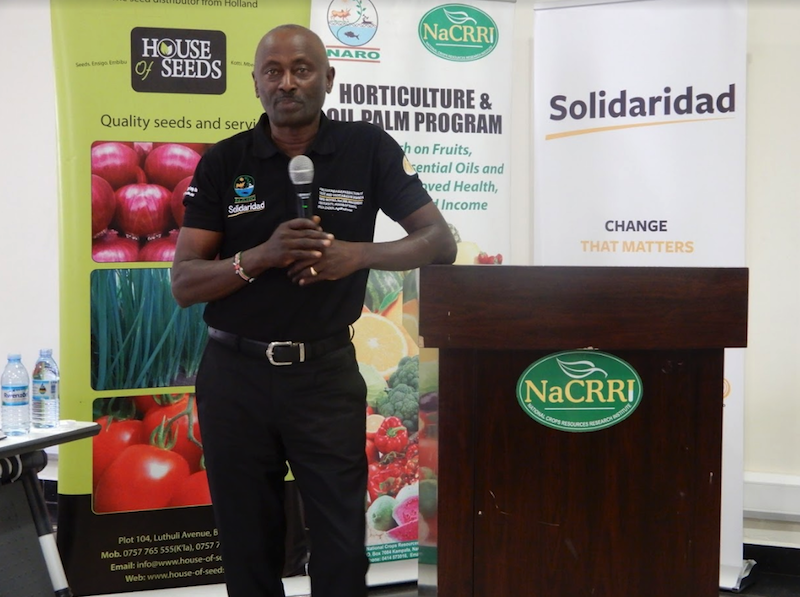
The Uganda Horticulture Sector
Tomato, commonly referred to as “Enyanya” in the local Luganda dialect, is a staple vegetable grown all over the country and by both genders to support livelihoods. The crop has the potential of increasing income, improving living standards and employment creation.
Tomato production in Uganda has been limited by bacterial wilt. The main varieties grown include Money Maker, Bonny Best, Marglobe, Rio Grande, Tengeru 97, Amateur Rodade, Heinz, and New Fortune Maker F1. The choice of tomato variety cultivated is based on fruit quality, adaptability, reliability, and susceptibility to pests and diseases.
Uganda’s horticulture sector comprises vegetables, flowers, fruits, nuts and medicinal aromatic plants. The industry accounts for 14.4% of the national GDP, making Uganda the second largest producer of fresh fruits and vegetables in sub-Saharan Africa (after Nigeria).
The country’s annual horticultural exports volume currently stands at 1.1million tonnes, and is valued at US$35 million. The main export markets for edible vegetables have largely been regional, with Kenya as the main export market. Other export markets include South Sudan, United Kingdom, DR Congo, India and Rwanda.
